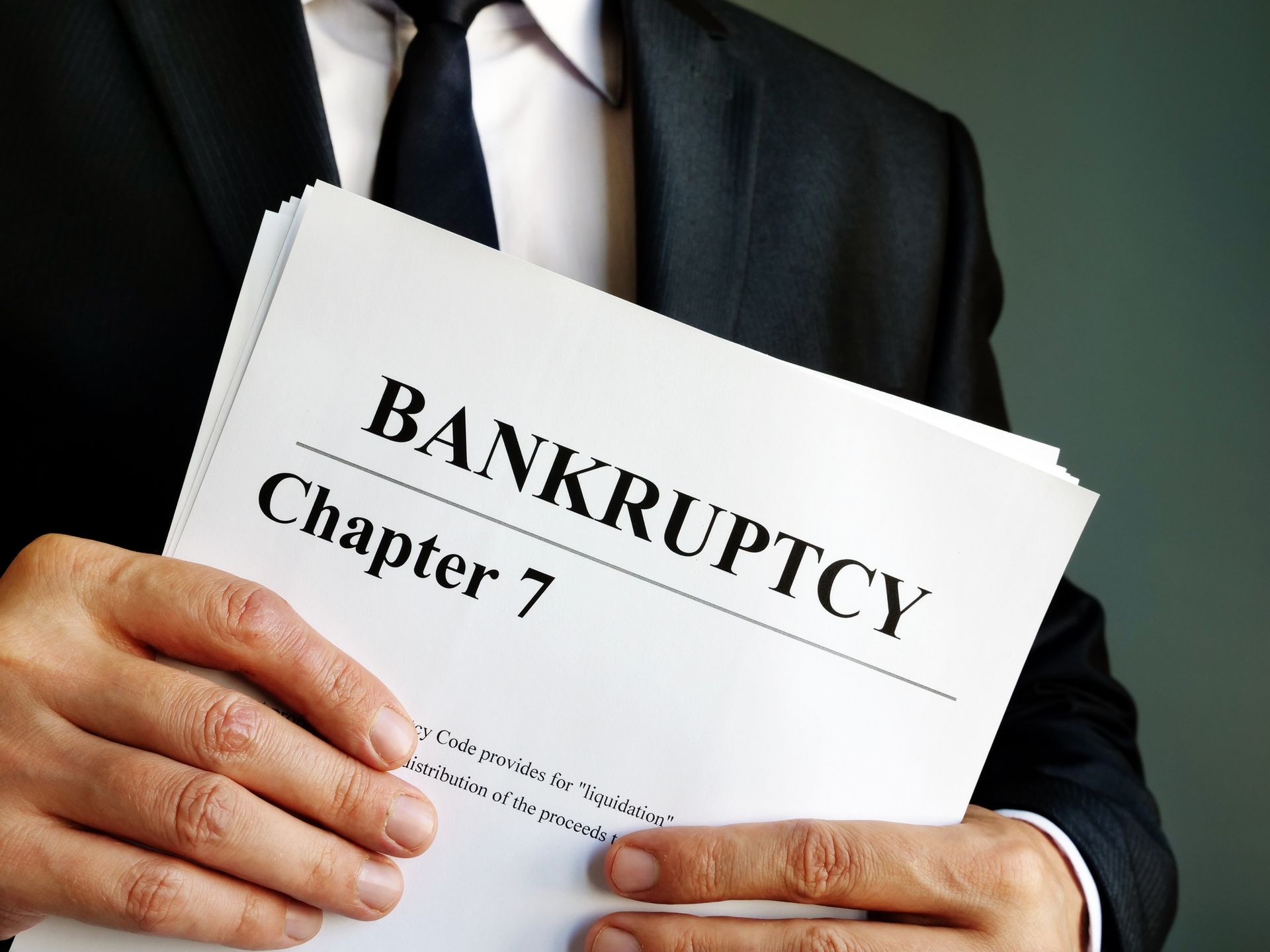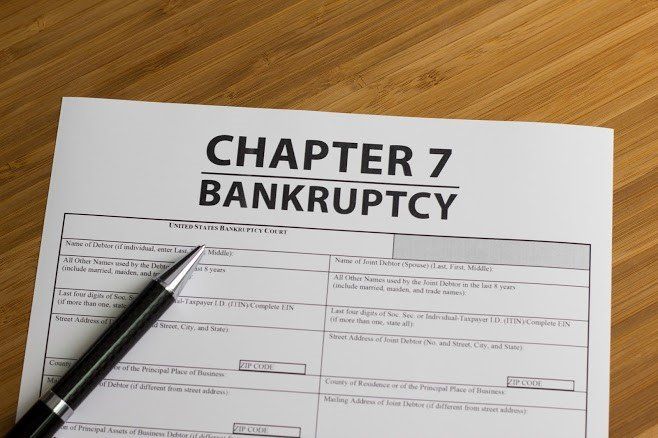Call or Book Your Appointment Today, Click Below:
BLOG
Contact the Law Offices of John A. Foscato, SC, in Green Bay, WI by calling
920-432-8801. Read our blog posts below for important information.
Our Current Blog Posts

Recently due to COVID-19, millions Americans have filed unemployment claims as cities and states around the country continue to order Americans to shelter in place in an attempt to mitigate the public health fallout from the coronavirus. Without work, many Americans worry about their ability to pay rent and other bills, as well as buy essentials such as groceries. About 58% of Americans say they’ve already lost income because of coronavirus, according to TransUnion’s online poll of over 3,000 U.S. adults. Of those, nearly seven out of 10 are worried about paying their bills and making good on loans. Here’s what our office says you should understand about the process, and the steps you should take before filing for bankruptcy.
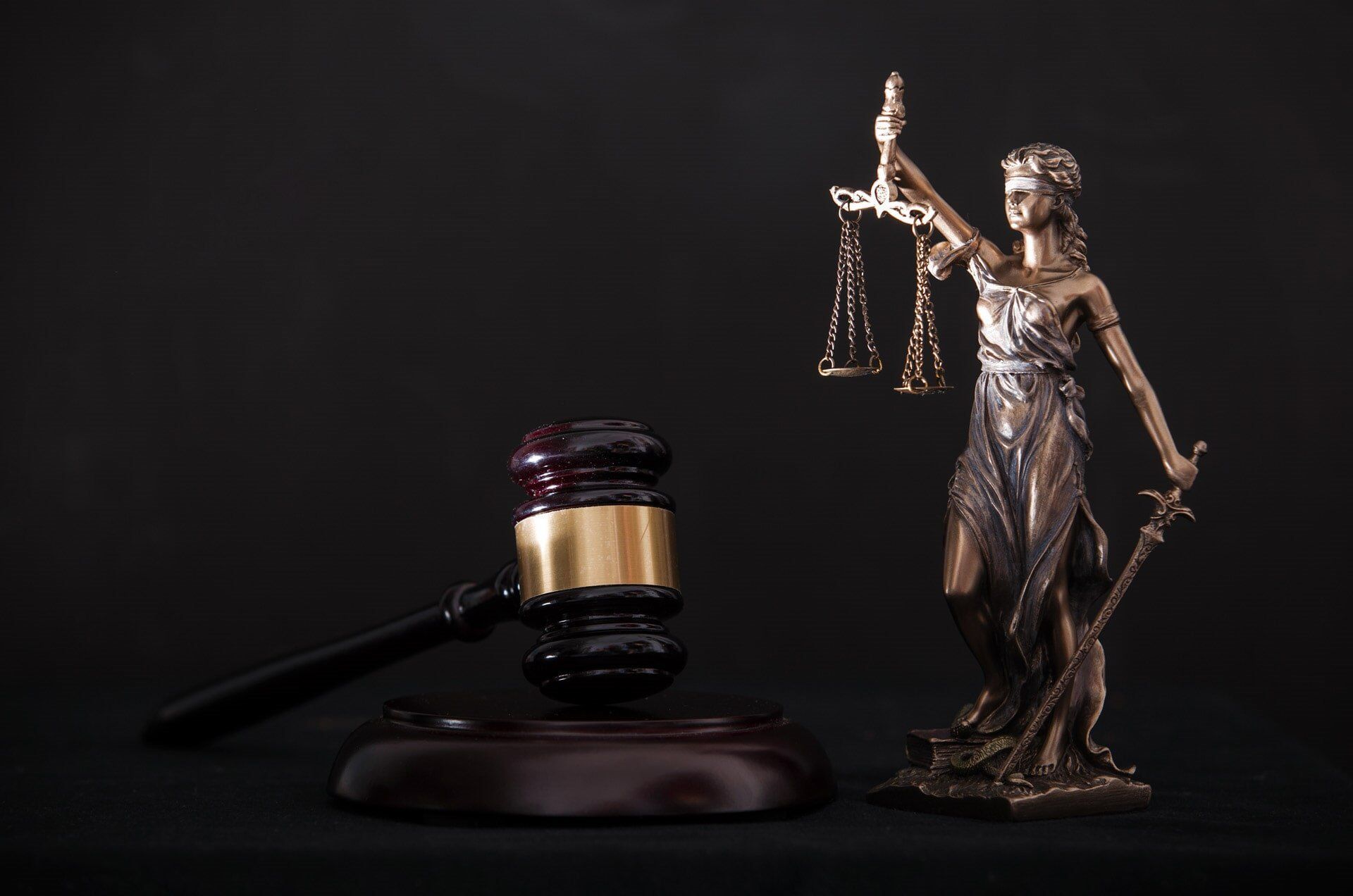
A federal judge in Virginia has fined a Chicago bankruptcy law firm and one of its attorneys $300,000 following a trial, blasting its focus on cash flow over professional responsibility. UpRight Law used "hard sell" tactics to corral debtors into filing bankruptcy, wrote U.S. Bankruptcy Judge Paul Black of the Western District of Virginia, Roanoke division, in a 62-page opinion released Feb. 12. Sales representatives were poorly supervised and would sometimes, "due in no small part to the commission and sales structure imposed upon them," offer legal advice they weren't qualified to give. When the firm was sued, UpRight's in-house lawyer tried to persuade several debtors to assert attorney-client privilege "in a thinly veiled attempt to cover its own tracks." The lawsuit, brought by the U.S. Trustee for Region Four, attempted to paint UpRight Law as a "bankruptcy boiler room." The suit named not only UpRight Law, which is the business name for Law Solutions Chicago, but also Managing Partner Kevin Chern, Chief Operating Officer Jason Allen and Executive Director Ed Scanlan. (Scanlan is not an attorney.) The case went to trial in September. "This court believes that the UpRight defendants acted in bad faith," Black wrote. "The privileges of (the UpRight defendants) to file or conduct cases, directly or indirectly, in the Western District of Virginia shall be revoked for a period of five years." UpRight's executives declined to comment through their attorney. But Black noted in his opinion that they had portrayed themselves "as cutting-edge advocates for the financially distressed consumer. They contend they have identified a void in the legal market for consumers that they are uniquely able to fill by using technology and the internet to match underserved areas of clients with attorneys who have the capacity and ability to fill their needs on a national basis." Scanlan, who was named to the 2009 Crain's 40 Under 40 class, has been trying to modernize the legal industry since the early aughts. He started Total Attorneys, a back-office support shop for small law firms, and grew it to 250 employees and $23.9 million in revenue in 2009. (He stepped aside as chief executive in 2012.) He met Chern when he designed the website for Chern's bankruptcy firm, Legal Helpers. They joined up to form UpRight Law, which employs about 150 people in the Loop. UpRight capitalized on marketing reach, extended customer service hours and modern workflow software to bring in more clients. While its website said it "provided greater access to justice to thousands of Americans," it priced bankruptcies in line with industry standards: $1,000 to $2,000. Black criticized another "scheme" the firm participated in. It accepted at least $333,500 from a towing company that agreed to pay legal fees for UpRight clients who allowed it to tow their vehicles, often across state lines. Cars went from Florida and Virginia to as far away as Indiana, Nevada and Mississippi. The company, Sperro of Camby, Ind., then auctioned off the cars and trucks, effectively denying creditors their collateral. A representative for Sperro, which had a default judgment entered against it, could not be reached for comment.
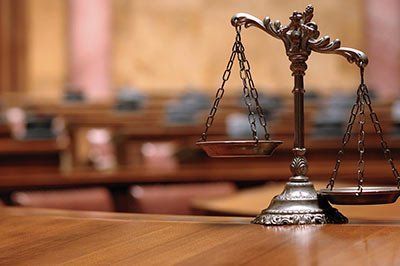
An underwater mortgage means that a homeowner owes more money on his or her home than what it is worth, and this situation often places stress and financial burdens on the homeowner. If you have an underwater mortgage and are severely struggling to stay afloat, you should consider talking to a bankruptcy lawyer about Chapter 13 bankruptcy. Through Chapter 13 Bankruptcy, you may be able to use lien stripping to reduce the amount you owe on your house. Here are a few things to know about lien stripping. What Is Lien Stripping? A lien is a right someone has to one of your assets. For example, when referring to a mortgage, a lien represents the money you owe to the mortgage lender. You might have only one lien on your house, which would be your regular mortgage payment, or you might have several liens if you have a second or even a third mortgage. Lien stripping allows you to eliminate liens on your house, however, it is only offered in Chapter 13 bankruptcy cases, and you must qualify. If the court approves lien stripping, the debt you owe on your second or third mortgage will be forgiven. How Do You Qualify For Lien Stripping Before you get too excited about the possibility of lien stripping, you need to understand how you qualify, which is somewhat confusing to most people. The basic things you need to know are: The current value of your house The total amount of money that you owe on all mortgages you have on the house Once you have this information, you can show it to your bankruptcy lawyer. He or she will analyze the details to determine if you qualify for lien stripping. The main thing to understand is that you will only qualify for lien stripping if you owe more money on your house than what it is currently worth, and if you have at least one junior mortgage (also known as a second mortgage). In other words, the only liens bankruptcy strips are unsecured liens, which refer to any loans other than the first mortgage on your house. For example, assume you owe $225,000 on your first mortgage and your house is worth $200,000. If you have a second loan of $100,000 on the house, you could strip the entire second lien because you owe more on your house with the first loan than what the house is worth. As long as you owe more on the first mortgage than what the house is worth, Chapter 13 bankruptcy will strip all other loans you have. What Other Benefits Does Chapter 13 Offer? Filing for bankruptcy has consequences, so you should carefully consider whether or not it is the right option before you proceed. If you are considering Chapter 13 bankruptcy, a lawyer can help you understand the other benefits it may offer you. One benefit it offers is a manageable to repay the debts you owe. Chapter 13 bankruptcy can also stop foreclosures and repossessions from occurring. Through Chapter 13, you have a way to keep the things you own by repaying them slowly over a period of three to five years. If you cannot keep up with your house payments or any other types of debts you owe, contact the Law Offices of John A. Foscato, S.C. We can help you determine if Chapter 13 bankruptcy could provide the relief you need. We offer free consultation visits so you can receive the information you need to make a wise, informed decision. Don't hesitate to contact our office in Green Bay or Oconto today.
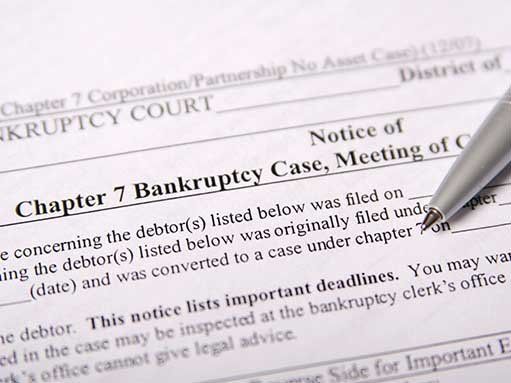
Most people fear filing for bankruptcy because of the negative stigma attached to it, but they also fear that their credit will be ruined forever. Filing for Chapter 7 bankruptcy does have an impact on credit, but it does not affect a person forever. If you are considering filing but are afraid you will never get a loan again, you should understand the effects Chapter 7 has on credit, as well as the steps you can take to begin rebuilding your credit right away. Effects On Credit Report After you file for Chapter 7, the bankruptcy court will post the bankruptcy filing on your credit report. Bankruptcy is listed as a public record, which is considered a derogatory item on a credit report. This posting will remain on your report for 10 years, and there is nothing you can do to remove it from your credit report. As soon as this posts to your credit file, it could cause a decrease in your credit score; however, your score might not decrease as much as you think. You might already have a low credit score if you are in bad financial shape. Any of the following things can decrease your score: Late payments to credit cards Maxed-out credit lines Repossession of a car Debts that went to collections Past-due child support, alimony, or tax debts If you have any of these items on your credit report already, it's likely that your credit score is already fairly low. Adding a bankruptcy to it may decrease it a little more, but it would not really have a huge impact on it. Ways To Rebuild Your Credit The good news is that you can take steps to improve your credit score, and you can start immediately after filing for bankruptcy. If you take the right steps, you might qualify for credit cards, car loans, and even a mortgage within just a few years of filing. Here are the best steps to take: Dispute inaccuracies on your credit report – You should begin the process by obtaining a copy of your credit report. When you get this, look it over carefully and dispute items that are not correct. You must dispute each inaccurate item with each credit bureau that lists the item. While this process takes time, it is easy to do. Simply follow the directions each bureau offers. Get a secured credit card – Next, apply for a secured credit card. This is a credit card that requires a deposit. After you make the initial deposit, you get a credit card you can use for purchases. The nice part about this is that it helps rebuild your payment history by adding positive information each time you use the card and pay it off. Get a car loan – Adding a car loan will also add positive information to your credit report, and any positive information increases your score. If you cannot get a car loan yourself, see if you can find a cosigner to help you get one. Pay all your bills – Finally, make sure you pay every bill you have on time and avoid racking up new debt. With these steps, your credit score will slowly increase. Within a few years, you might have a credit score lenders consider "good." Discussing your unique situation with a bankruptcy lawyer is the best thing you can do, and you can do this for free. Contact the John A. Foscato Law Firm to schedule a free consultation visit with a lawyer. You will not be obligated to proceed with bankruptcy if you choose not to, yet you will have the opportunity to learn the benefits and effects of bankruptcy.
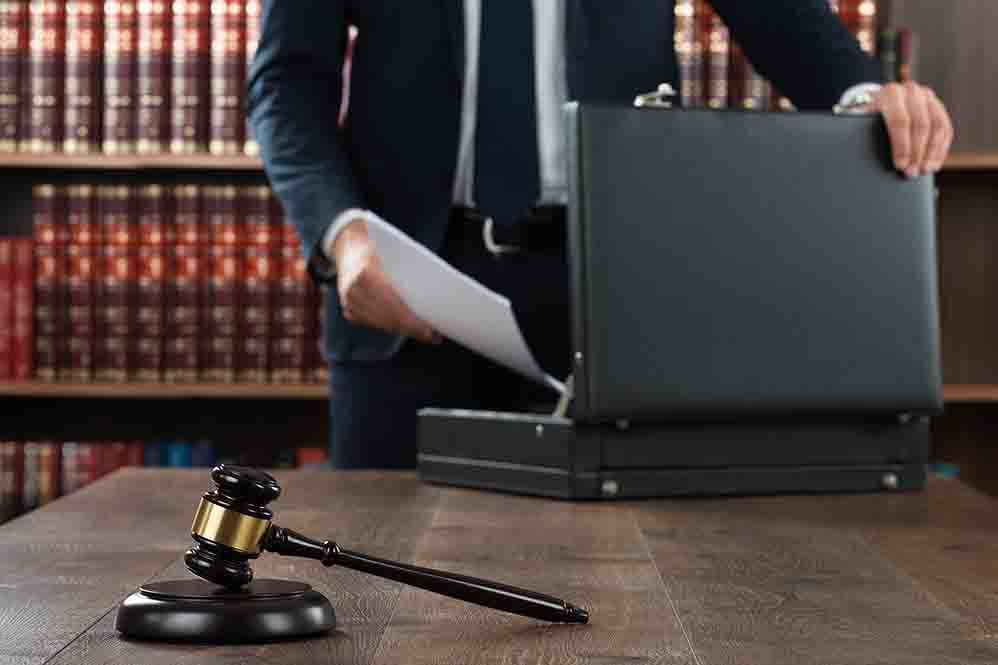
Receiving foreclosure papers in the mail might be the worst news you received in a long time, yet it probably didn't surprise you. When borrowers miss payments, lenders have the right to take their homes from them through the process of foreclosure. While reading foreclosure papers is scary, there might be a way you could stop the process and keep your home. The solution is filing for bankruptcy. How Bankruptcy Works Bankruptcy is a branch of law that allows people to gain relief from debts, and there are two main types of bankruptcies available to consumers. The first type is Chapter 7 , the preferred option in most cases, and the second type is Chapter 13. Both types require filing the necessary documents and fees; however, the outcome of each type is different. Chapter 7 discharges debts, meaning the filer never repays the debts included in the bankruptcy estate. Chapter 13, however, requires a plan of repayment, which lasts three to five years. The repayment plan requires repaying a certain percentage of debts, and the court determines this by the filer's income and debts. Times When Chapter 7 Is The Best Option Choosing Chapter 7 bankruptcy often appears as the best option, but this is not always the case. There are times when filing for Chapter 7 helps people stop foreclosures, but this depends on several important things: If you qualify – Before someone files for Chapter 7, a bankruptcy lawyer must perform a means test on the person's income. As long as the person's income meets the correct standards, the person could consider Chapter 7. If there is very little equity – The second thing a lawyer looks at is the equity in the home. If you owe very little on your home, Chapter 7 probably isn't a good idea, but it is a good idea for people with very little equity in the homes. If the lender agrees to it – The other important factor is that the lender must agree to let a person keep his or her home when filing for Chapter 7. Most lenders willingly agree to this when borrowers are not behind on their payments, but many lenders won't agree to it if borrowers are behind. The only way you can know for sure if this is right for you is by visiting a bankruptcy law firm and discussing your personal situation with a lawyer. Times When Chapter 13 Is The Best Option If you do not qualify for Chapter 7, Chapter 13 might be your only option; however, there are also times when people qualify for Chapter 7 but find out that Chapter 13 is the better branch for them to use when trying to save their homes from foreclosure. Here are several reasons why Chapter 13 might work better for you: Your lender won't agree to let you keep your house – Because you are behind on your payments, your lender has the right to deny your request to keep the house. With Chapter 13, your lender will not have a choice. You have too much equity in your house – If there is too much equity in your house, choosing Chapter 13 bankruptcy is the route you have to keep the house. Every situation is unique from all others, which is why you should visit a lawyer to find out if this could help you prevent your lender from going through with the foreclosure. If you want to know more information about how bankruptcy works, contact The Law Offices of John A. Foscato, SC to schedule a free consultation visit with an experienced attorney.

Because going through bankruptcy is already a difficult situation, you shouldn’t have to further worry about the competence of your own lawyer. A qualified attorney should handle your case while you handle taking care of your assets. You deserve an expert bankruptcy lawyer who has the professionalism, experience and reputation to handle your case. Professionalism The level of service delivered shows a sense of professionalism and care of your lawyer. How engaged is she with you? Does she offer a free consultation as well as follow-up meetings? How available is she to help you understand your case and the legal process? Keeping consistent contact with you shows you that your lawyer cares about you and your case. Experience Choose a lawyer who has a number of years of experience dealing with bankruptcy cases. Moreover, you should find a lawyer who specializes in handling Chapter 7, 11 and 13. Although the attorney might have many years of trying family law cases, this does not necessarily mean she is an expert in bankruptcy law. In addition, inquire about the lawyer’s caseload they take on each year. This might give you an idea of how much time your attorney will spend fighting for you in the courtroom. Reputation Look into the attorney’s reputation online , even if a friend or family member referred her to you. Investigate online review sites, such as Better Business Bureau, Avvo.com or YP.com, to see what others are stating about their experience. Review the law firm’s website for qualifications and awards. Where did the lawyer take her State Bar exam? Where did she go to school? Questions such as these will help you choose a lawyer who can help you successfully handle your case. Consider the qualities of professionalism, experience and reputation when searching for a bankruptcy lawyer . Contact the Law Offices of John A. Foscato to schedule your free consultation today to discuss your case.

Individuals considering bankruptcy must decide whether to file for Chapter 7 or Chapter 13 protection. A Chapter 7 is generally a liquidation where most of the individual's debt is discharged and payments are not made. Conversely, in a Chapter 13 , those with regular incomes set up a plan to pay some or all of their debts over time. Here are three benefits to filing a Chapter 13 that don't exist in a Chapter 7. Stops Foreclosure In a Chapter 13, the debtor sets up a plan to pay off any arrearages to the mortgage for his primary residence. The mortgage holder may not foreclose unless the debtor falls behind in the payments, so most debtors are able to keep their homes. Refinance Secured Debts Other secured debts such as homeowners association dues or car payments may be refinanced and paid over the term of the bankruptcy. This typically lowers the monthly payment amount. Stops Creditor Activity Once a Chapter 13 petition is filed, collection activity is stayed. This stops the calls from creditors. The debtor makes all payments to the bankruptcy trustee, so they no longer have to deal with harassment or intimidation from debt collectors. If you are considering bankruptcy to help get your debts under control without losing your home, a Chapter 13 might be the solution for you. Calling The Law Offices of John A. Foscato in Green Bay at 920-432-8801 for further information on how a Chapter 13 helps you.

Mortgage modification becomes necessary when a homeowner cannot make the monthly payments that were initially agreed upon. Any number of circumstances can arise to where this would become a reality. Although modifying mortgage payments is possible, there are some things to know about the process. Laws On The Books The Mortgage Assistance Relief Services Rule has been in effect for several years now. This rule essentially makes it mandatory that companies dealing with modification must disclose all pertinent information about the alteration to the client before it can actually be made. This allows consumers to make the best financial decision possible. Laws Regarding Attorneys It can be highly beneficial to hire a lawyer to help mediate conversations with your loan provider to help increase the likelihood of getting a more favorable arrangement. Attorneys who take on this work need to be qualified in four separate areas. They need to actively practice law They need to be fully licensed in the state of Wisconsin They need to comply with all state laws concerning mortgage modification They need to put any client fees into a trust account It can seem daunting to try to ask your lender for a modification on your own. Have someone in your corner by contacting The Law Offices of John A. Foscato in Green Bay at 920-432-8801 .

Starting a small business is exciting. However, if you are not careful, your debts can quickly pile up. You may not be able to make payments and could be facing foreclosure on your building or other disastrous things. Therefore, it might be in your company’s best interest to file for bankruptcy. Chapter 7 There are primarily two types of bankruptcies available to small-business owners, and the first is Chapter 7. This type is recommended to companies that are sole proprietorships. Not only are all your business and personal debts wiped clear, but your business assets will be protected. However, it is important to keep in mind that with Chapter 7 you are essentially closing up shop with your business. Chapter 13 Chapter 13 is the other type of bankruptcy that small-business owners can use. After filing, a repayment plan will be developed that will allow you to pay off your debts more easily. It also protects your assets. However, Chapter 13 takes longer to finish than Chapter 7, but it does allow you to prioritize which of your debtors gets paid first. There are numerous nuances of the law, and you may require assistance to figure out which type is best for you and which one will allow you to continue your business operations. Contact The Law Offices of John A. Foscato in Green Bay at 920-432-8801 to learn more about the law surrounding small business bankruptcies .

Bankruptcy is a long process that doesn’t fit every situation. Here in Wisconsin, you have a different alternative, called Chapter 128. Chapter 128 is neither bankruptcy, nor credit counseling. It is a debt consolidation repayment plan through the court system. You get 36 months to pay off items, which are not considered collateral debts, like credit cards, medical bills, personal loans and miscellaneous bills. Student loans, taxes and your mortgage cannot be included in this plan. It costs under $50 to file Chapter 128 with the court. You work with an attorney to determine the payments to the trustee. It’s recommended that payments to the trustee be done through a wage withholding plan, making it easy to make payments each time. Although the trustee does not clean up your credit report; however once the plan is completed, you get documents from the court that will help you clean up remaining problems with the credit bureaus. How It Helps Ease Financial Stress Open to Wisconsin residents even if you don’t qualify for bankruptcy Repay debts Doesn’t get listed in the newspaper Inexpensive to file No need to make a court appearance You don’t have to list all your debts It can stop garnishments Can file more than once If you’re struggling with debt and do not qualify for a federal bankruptcy, get more information about Chapter 128 by calling The Law Offices of John A. Foscato in Green Bay at 920-432-8801 .

*12 YEARS RUNNING – GREEN BAY AREA’S ONLY 12 TIME BANKRUPTCY SUPER LAWYER 2008 - 2020
by Milwaukee Magazine
- Voted Top 5% of Attorneys and Peer Reviewed
- Validated by Third Party Research Across 12 Key Categories


